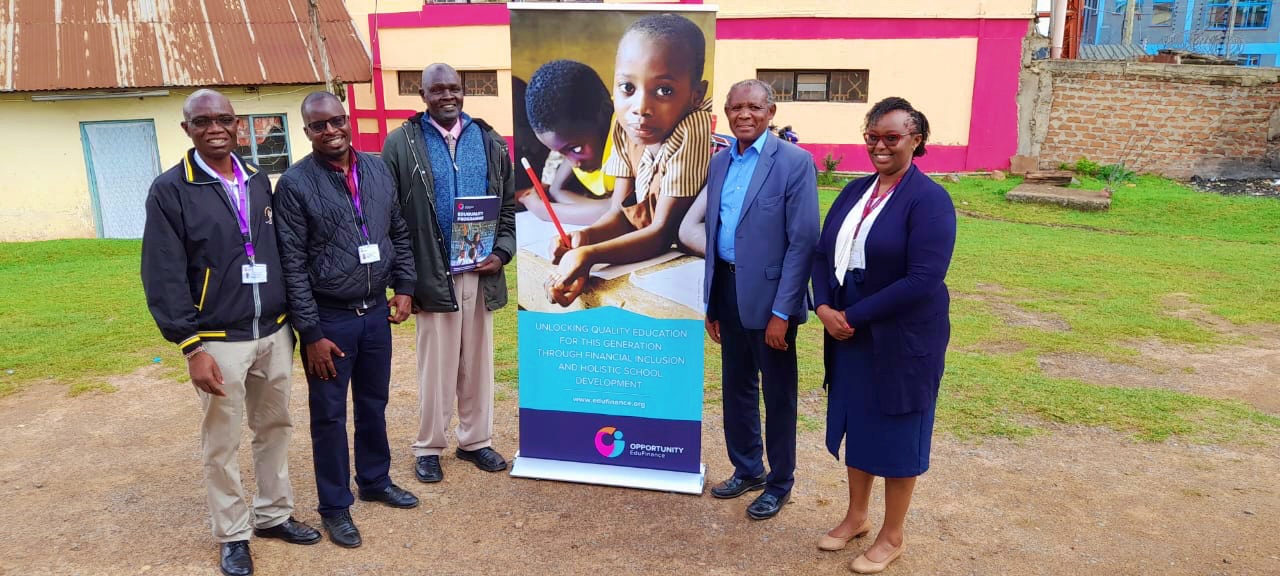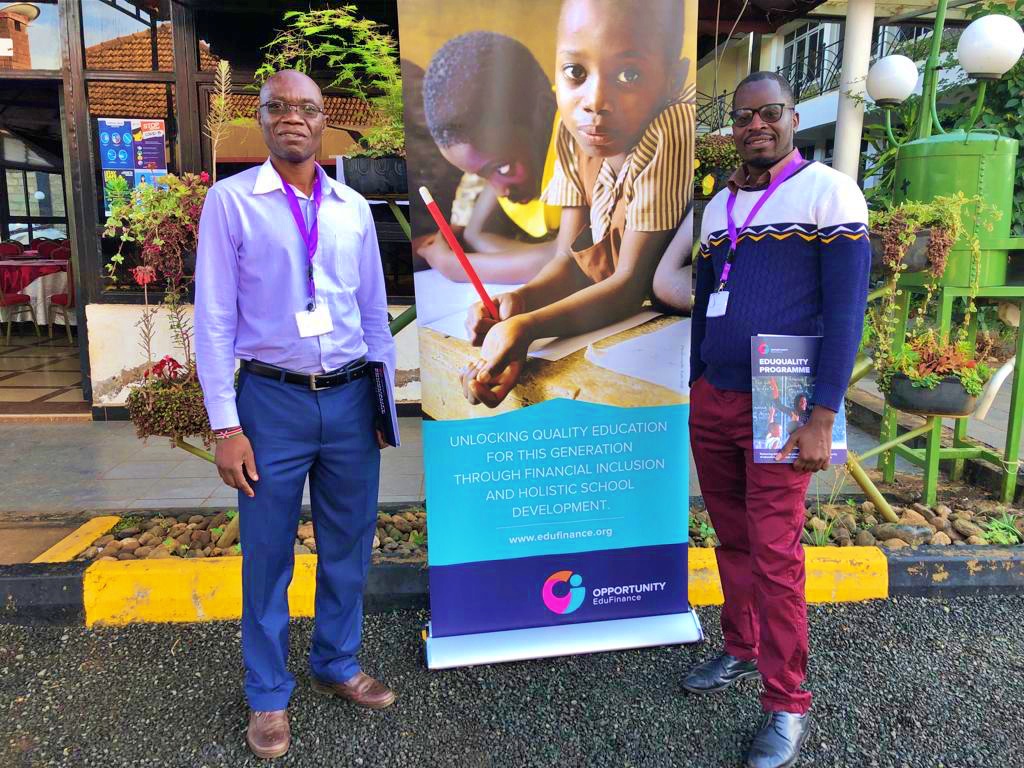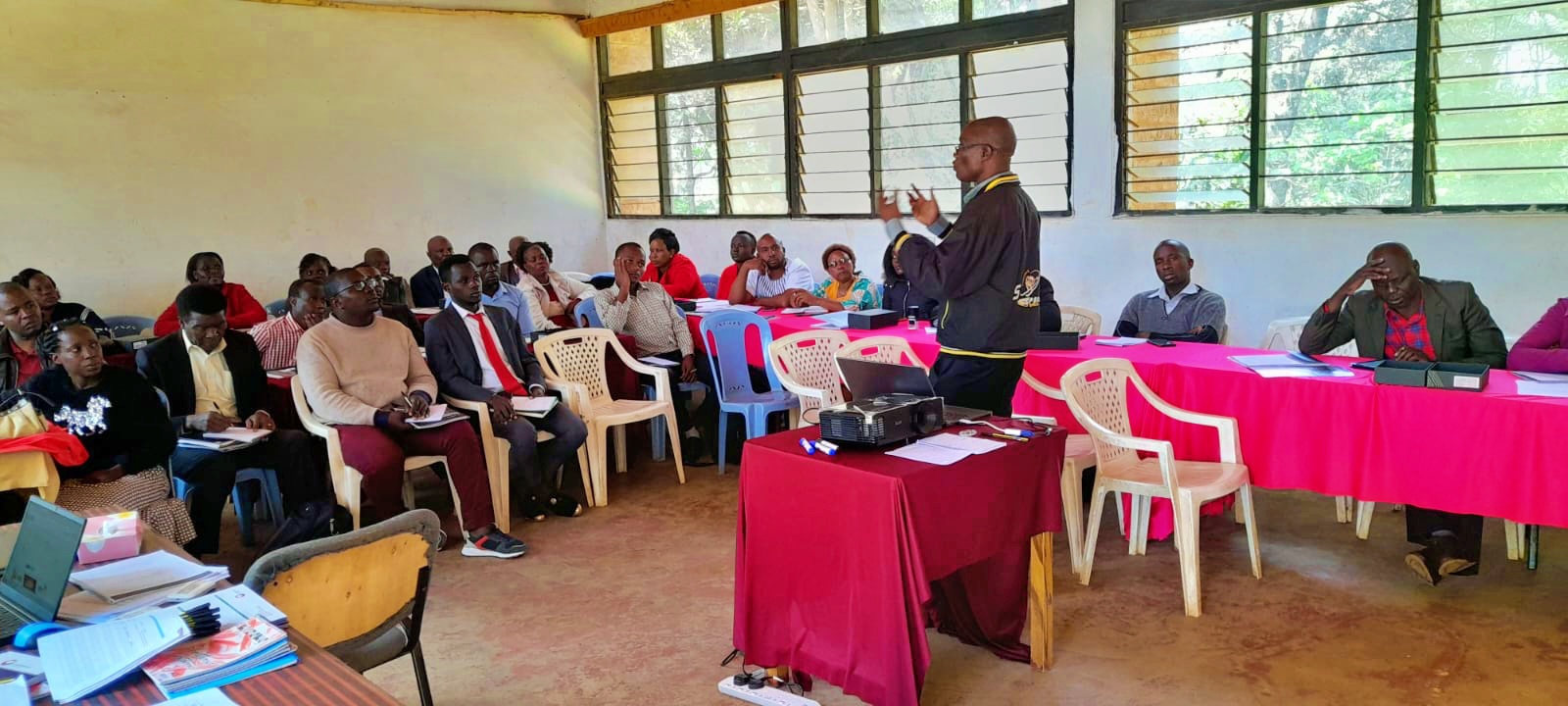‘We want to see a transformation in the schools that we have started this journey with’ - EduQuality Western Kenya Launch

Battling a high illiteracy rate with many learners out-of-school, Western Kenya stands as an area with great potential to increase access to quality education for children. In this context, the EduQuality program has just launched in Western Kenya in March 2023 with 104 schools in the regions of Eldoret, Kitale, and Kapenguria.
Opportunity EduFinance offers a holistic three-year school development program to local affordable non-state schools called the EduQuality program. The EduQuality program currently partners with more than 2,000 schools in 11 countries including a large program in the Greater Nairobi area in Kenya.
To give an insight into the background and learnings from the launch, we spoke to Violet Oketch (Head Education Specialist, Kenya), and Anne Njine (Senior Education Specialist, Kenya).
What does the education landscape currently look like in Western Kenya?
Violet: Our program works with affordable private schools, where we bring in trained teachers to help increase the quality of education. Most private schools in these regions cannot afford trained teachers so they employ those who have not received any professional teacher training beyond the completion of secondary education.
Anne: As more communities grow interested in development and rebuilding, some towns in these counties are moving towards a more cosmopolitan lifestyle. In turn, this has attracted a lot of business, motivating people from lower economic statuses to relocate to these areas. We found that most parents bringing their children to EduQuality affiliated schools are from low-income backgrounds.
A proportion of Western Kenya such as West Pokot County where we are now working, reports a large amount of crime. Although the schools are not in these areas, a lot of learners are from there. This means we must do as much as we can to increase parent engagement with schools, to ensure that parents understand the importance of supporting their children in accessing quality education.
Violet: In 2018, the Ministry of Education found Western Kenya had a high rate of illiteracy, at 67%. Supporting these areas and ensuring that the EduQuality program is running in these counties is important to us. We hope that we can help change the private education system here.
What backgrounds do the school leaders have?
Violet: Most school leaders are retired public school leaders who are now venturing into the private school business. Usually, they bring in the same strategies and techniques they have been practicing their entire career, which can be tackled through the training and mentorship the EduQuality program provides.
However, these retired school leaders hold vast experience in school management and issues related to education and community members have higher respect and trust in them. Knowing that a private school belongs to a former head teacher at a public school has played out as a marketing strategy for the school in the community.

Why do you think it was important to launch the EduQuality program in Western Kenya?
Anne: Firstly, research shows that illiteracy levels here are quite high. The current private education system needs improvement.
The launch of the EduQuality program in Western Kenya is hopefully going to be incredibly beneficial. We intend to equip teachers with best practices in the field of teaching. This means most teachers will have to unlearn their previous practices so we can equip them with improved teaching strategies. Additionally, we hope to nurture school leaders’ management techniques and communication with parents.
Violet: It is very exciting to be traveling to more rural areas and understanding the educational landscape and figuring out how best our EduQuality program can impact the learning outcomes, especially since it is a different area with different challenges.
I believe if we can be successful in Western Kenya, then our program can be scaled up in the entire country because these rural towns face the most hardship, which reflects what Kenya is all about." – Violet Oketch
Violet: We need to navigate these challenges in partnership with the school leaders and ensure that they can increase the learning outcomes in their schools. These communities want improvement and change.
Anne: However, they have faced so many hardships that their thinking and their resources are limited. If we can help them think differently and encourage a shift in their mindsets, it will be a big win for us.
What steps did you take to ensure a smooth launch?
Violet: Utilizing our partnership with financial institutions has been very helpful. They were able to share a list of schools that they are working with, which we used to mobilize the school leaders in these areas, with the help of the Education Specialists recruited specifically for these regions (Eldoret, Kitale, and Kapenguria).
Another important step we took was deploying a team. Right after recruiting and onboarding the new Education Specialists, we sent them into the Western Kenyan areas so they could secure their footing, understand the area, and start reporting back as they began mobilizing schools.

What milestones did you reach during the launch period?
Violet: We onboarded 104 schools and we have seen an increase in requests and engagement from other schools about joining the program. This is due to word of mouth between schools and communities. We are now planning a second introductory seminar to bring in these new schools who are showing interest.
Anne: Our goal was for school leaders and teachers to understand the importance of professional development. Before the Introductory Seminars, school leaders and teachers did not necessarily see the gap in the level of training required to provide quality education. Like other professional fields, teachers have to attain a certain level of training, beyond secondary education. By the end of the intro seminars, they were able to see the need for professional development.
What challenges did you encounter during the launch period?
Anne: Most communities, including school leaders, were unsure about the EduQuality program since we were providing free training and support. When receiving the initial call to attend sessions, several school leaders thought it could be a scam. However, the reports post-onboarding showed that the schools became engaged and interested in the EduQuality program.
Challenges included connecting with financial institutions, identifying use for training, and having Education Specialists on the ground to respond to schools that were not confident about attending sessions." – Violet Oketch
Anne: Our Education Specialists play a very important role in maintaining a relationship between the schools we work with, and the EduFinance lending organizations. During onboarding, we ensured that the new Education Specialists understood how important relationships with our partners are. We want to show school leaders that they are highly valued, and our goal is to be an accountable partner with the aligned mission of increasing the quality of education.
Most parents did not have a proper education themselves and do not know what to expect. We see that a lot of parents are incredibly supportive of their children’s education and dream of them reaching higher educational levels. However, they may not necessarily be aware of the steps to support their children throughout their academic journeys. There is a need to empower parents as they require support in understanding how to help their children outside of school.
In terms of succession, finding a replacement for a school leader can be quite tricky. Most school leaders do not have a willing successor, as there is a presumption that a school is not a lucrative business. In rural areas, we found families working towards relocation to bigger cities such as Nairobi to acquire more opportunities in the future and have their children attend schools there.
What do you hope for the future in Western Kenya?
Anne: We hope to see better school structures and create clean, safe learning environments. We want to see more parent engagement, where parents fully understand that parents, teachers, and children need to work together in this system of education. We would like to see school leaders becoming more creative, innovative, and resourceful in ensuring that children have access to quality education.
Violet: It goes beyond teachers in classrooms - the relationship between school leaders and their staff is just as important. Hopefully, teacher attrition rates will keep decreasing too. We would like to see an empowered community that believes in and supports increasing access to quality education.
Seeing evidence of a shift in people’s mindsets, and an improvement in some of the challenges the communities are facing would be such a big win for us." – Anne Njine
Anne: We want to see a transformation in the schools that we have started this journey with. Hopefully, these transformed schools can be used as examples of centers of excellence in their communities and schools that are actively improving themselves, allowing more children to access quality education. In the long run, we would love to hear stories about children completing their education and becoming successful so they can come back and help improve their communities.
Read our blog about the EduQuality program launch in Nigeria.